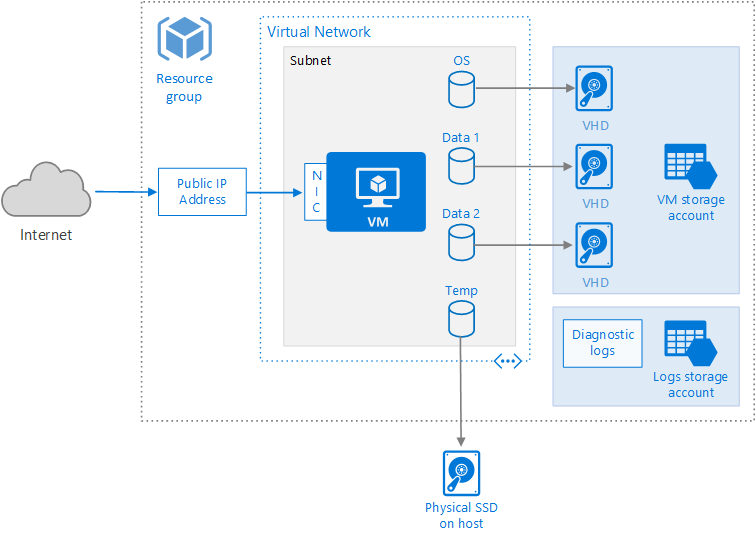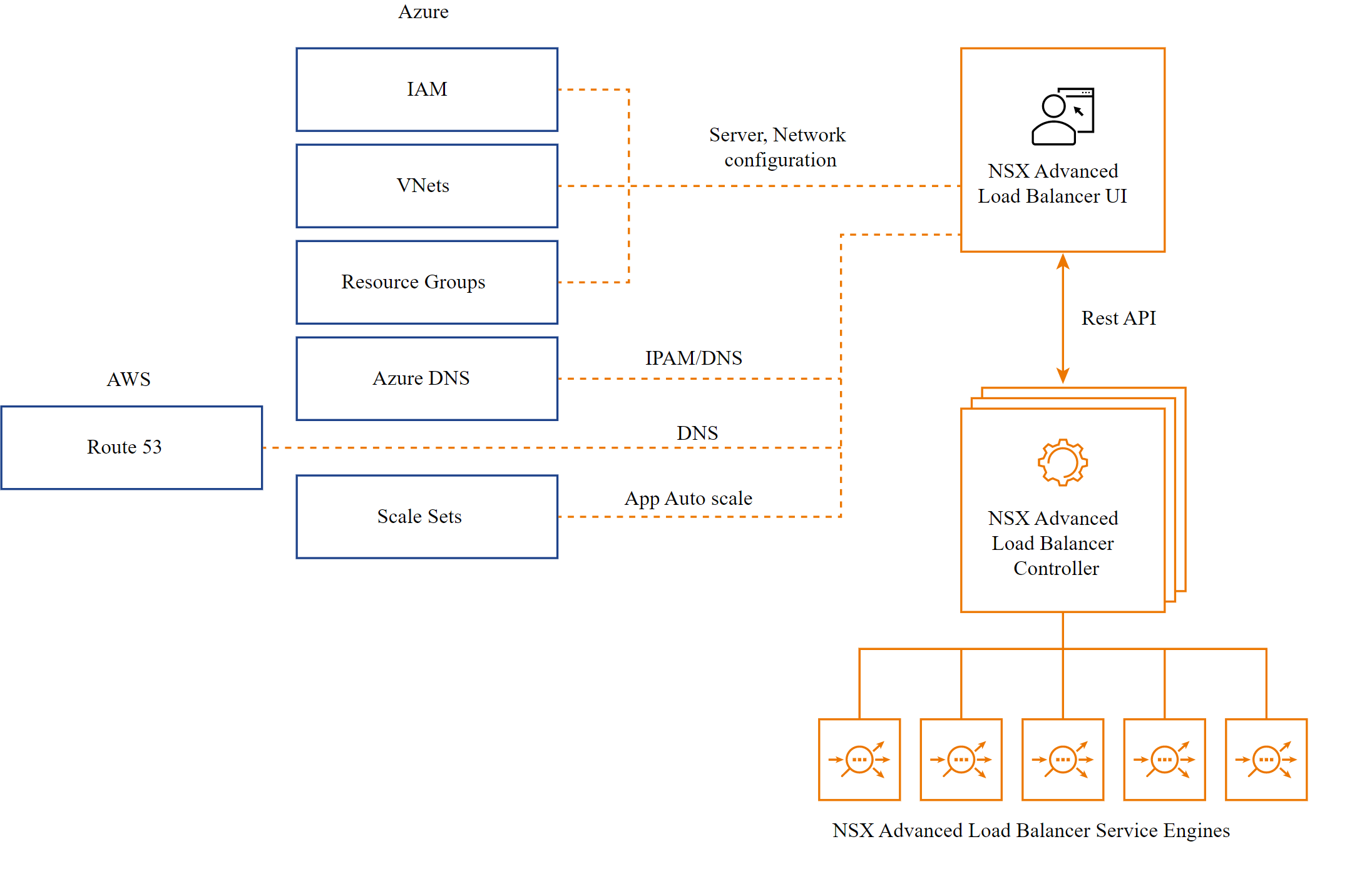This document describes the process of provisioning and configuring Avi Load Balancer as an application delivery controller for application workloads running inside Microsoft Azure.
Azure provides a set of modular cloud-based services with a host of development tools, including hosting and computing, cloud storage, data storage, translation APIs and prediction APIs. The following diagram depicts a sample Azure deployment.

Use of Avi Load Balancer with Azure provides the following functionality:
The Avi Load Balancer Controller is available as an Azure appliance (VHD).
Once the Avi Load Balancer Controller is deployed, Azure account details and credentials are provided to it. It then connects to the Azure infrastructure and automatically provisions Service Engines as required.
A single interface is available on the SE for control and data traffic (in-band management).
VIP addresses are allocated from Azure IPAM.
An optional, public VIP can be allocated automatically to a virtual service, along with a private VIP addres
The Avi Load Balancer deployment for Azure offers the following advantages:
A single Controller cluster manages services for applications across multiple virtual networks (VNets).
Auto virtual IP address allocation and auto DNS registration allow full automation for application load balancing.
The Controller automatically detects membership changes in the Azure scale set and updates pool membership for application autoscaling. Avi Load Balancer offers a flexible yet comprehensive solution that is infrastructure-independent, agile, and elastic at a reduced Total Cost of Ownership (TCO). The following figure depicts a sample Azure deployment.
Avi Load Balancer - Microsoft Azure
 The Avi Load Balancer Controller is available in Azure Marketplace and can be deployed directly from the marketplace.
The Avi Load Balancer Controller is available in Azure Marketplace and can be deployed directly from the marketplace.
After the Controller is deployed, Azure account details and credentials are provided. The Controller then connects to the Azure infrastructure and automatically provisions SEs as required.